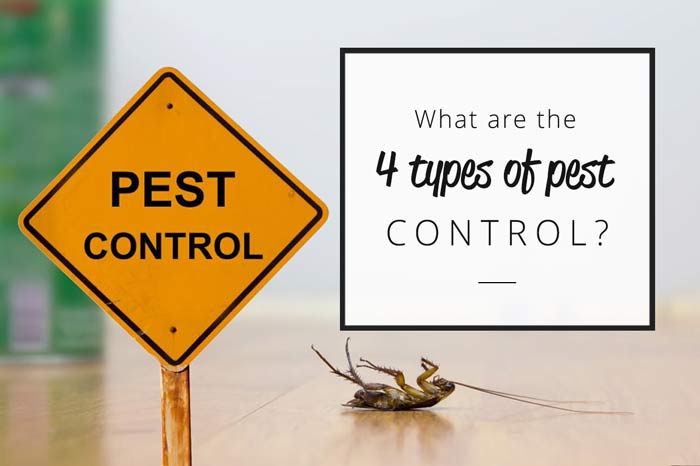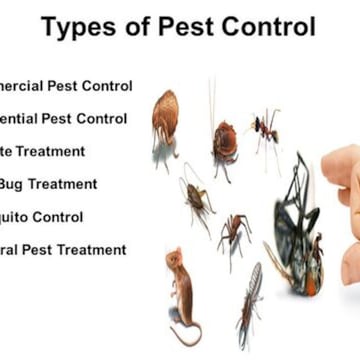What Does Pest Control Mean?
Table of ContentsExamine This Report on Pest ControlHow Pest Control can Save You Time, Stress, and Money.Pest Control Fundamentals ExplainedSome Known Facts About Pest Control.Some Known Questions About Pest Control.The smart Trick of Pest Control That Nobody is Discussing
Our searchings for reveal that the preliminary analysis will certainly set you back anywhere from $160-$300 on average. This typically sets you back anywhere between $400-$1000 for the whole year's coverage, with month-to-month or bi-monthly gos to already rolled right into the last price.Depending on the issue, a task that needs a single check out typically costs $300 to $550. These are the easiest rates to outline in your parasite control costs listing.
Pests that usually calls for continuous check outs consist of: Roaches. Crawlers. Termites. Ticks. Rodents. Our searchings for reveal that an initial go to is concerning $180 and is the initial of a continuous agreement. The initial see is where you do the exploring that will certainly help you identify a solution. Throughout this very first browse through, you must: Assess the trouble. Pest Control.
12-month agreement. Generally, the frequency of regular gos to is: On a monthly basis: $40 45. Every 2 months (semi-monthly): $50 60. Every 3 months (quarterly): $100 300. Pest control is a chemically-intensive company. Chemicals are the essential products that exterminators make use of to finish a work. Usual chemicals consist of: Boric acid.
How Pest Control can Save You Time, Stress, and Money.
Essential materials and materials you'll use consist of: Respirator. Sprayer. Gloves. Duster. Foamer Baiting devices. UV light. Other safety tools. It's essential to have every one of the right devices before beginning a work. Your tools should be consisted of as component of your expenses expenses. If you have workers, after that labor costs are going to be the most significant costs for your organization.
Limitations of Chemical Administration Be able to evaluate insect problems, determine if management is required, and make proper referrals utilizing IPM techniques. Recognize with different techniques of bug administration - their advantages and limitations. Comprehend the worth of advantageous bugs. It is not possibleor also desirableto rid gardens of all bugs.
This chapter talks about (IPM), an approach that uses knowledge about parasites and their, techniques, nonchemical techniques, and chemicals to take care of bug issues. Added details concerning IPM for particular plants is consisted of in phases that concentrate on those plants. Nonchemical parasite control procedures are worried in phase 17, "Organic Gardening." Taking care of birds and creatures is covered in phase 20, "Wild animals." Handling in the lawn and yard is covered in chapter 6, "Weeds." Bugs in a garden or landscape might include bugs and termites, weeds,, animals, and birds.
Pest Control - Questions
Bugs and weeds, nevertheless, play a function in the. After growing a yard or developing a yard, the all-natural process of plant succession begins to restore and nonnative plants.
What we call "insects" belong to a natural system at the office. An environment has no insects. Only people think about specific species bugs when they happen where they are not wanted. We will certainly be a lot more effective in handling undesirable species when we recognize that these organisms follow foreseeable patterns that we can make use of to our advantage.
Insects prone to a pesticide were promptly eliminated, leaving immune ones to reproduce and increase. It ended up being clear that chemicals alone would certainly not address all insect issues. Instead, overuse of pesticides created the advancement of immune pests. Researchers began to create a brand-new technique to pest control. This brand-new technique was described as incorporated insect management (IPM).
An IPM strategy permits some level of parasites in the environment. Insects are a lot less likely to endure a program that utilizes numerous different methods of reducing their populaces. Integrated parasite administration was first recommended by entomologists because pests were the very first group of parasites to verify challenging to take care of with chemicals alone.
Pest Control Things To Know Before You Get This

Management instead than eradication of bugs is the goal. An IPM strategy starts with a cautious assessment of each insect invasion.
Clover expanding in a grass might be considered as an undesirable weed, however as a bean it is synthesizing nitrogen for the dirt and the blossoms are providing nectar to honey and various other. Resistance for some weeds might be component of use this link an IPM strategy. may be eating the fallen leaves of a plant, but when they are identified as the larvae of Eastern tiger swallowtail butterflies, their damages may be endured so we can appreciate the gorgeous butterfly.
Number 81. Brown lacewing larva (Hemerobiidae family members). Pest Control. Matt Bertone Prevention is the first device in pest management due to the fact that it is one of the most effective, least pricey, the majority of eco-friendly option. Choosing a healthy and balanced plant that grows in the desired location with the readily available light, growing it very carefully, and guaranteeing that it has sufficient water and nutrients avoids stress and minimizes pest troubles.
Unknown Facts About Pest Control
The 2nd most important device in pest administration is early intervention. Responding to issues promptly, before they have time to increase, needs a much less remarkable intervention.
Numerous risk-free, useful, nonchemical techniques of plant defense and pest monitoring might reduce or remove the need to spray. Other methods are most beneficial when used with chemicals. To execute administration methods correctly and to minimize losses, gardeners ought to know the kinds of pests that strike plants and recognize pest biology.
Pest administration approaches fall under four groups: social, mechanical, biological, and chemical. Keeping plants healthy and balanced and protecting against plant anxiety helps plants to better withstand and fix the damages triggered by a bug or mite insect. Some evidence shows that healthy and balanced plants stand up to infestation by pests better than plants with low vitality.
Carrying out a soil examination and applying only the advised quantity of plant food and lime takes full advantage of the benefit to the plant while lessening issues associated with excessive use of fertilizer. Treatment the dirt with a number of inches of mulch safeguards the plant in several means: lowering dirt water loss to dissipation, minimizing weed competition, giving nutrients, and producing Website an ideal environment for earthworms and microorganisms that keep the soil loose for origins and damage down organic product to release nutrients.
The Basic Principles Of Pest Control

If tilling is deemed required, take into consideration doing it in the autumn when the life cycles of lots of bugs brings them near the surface. At the surface area, parasites become exposed to the climate as well as birds and other all-natural adversaries. Loss tilling can additionally damage insects in crop residues. Use healthsome and insect-free qualified seeds websites and plants if readily available.